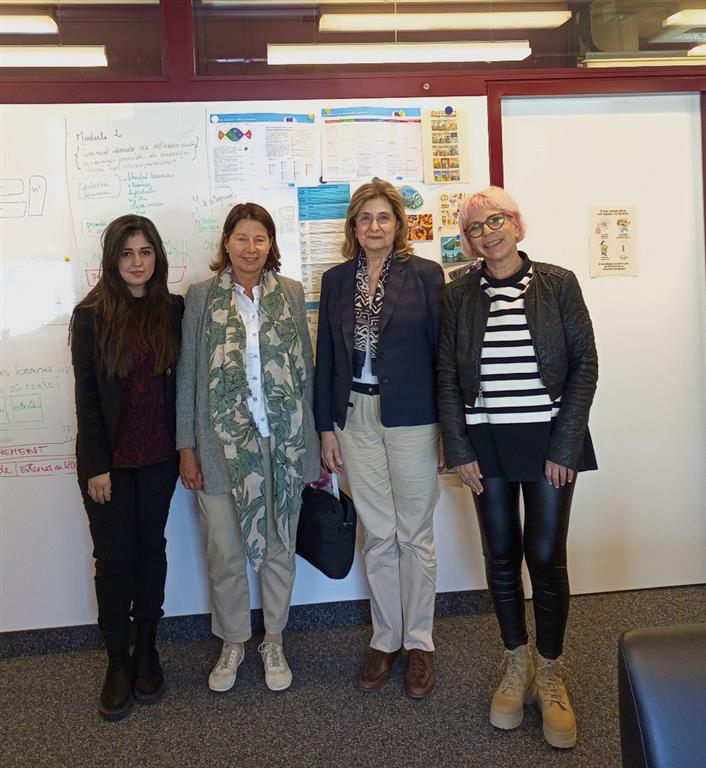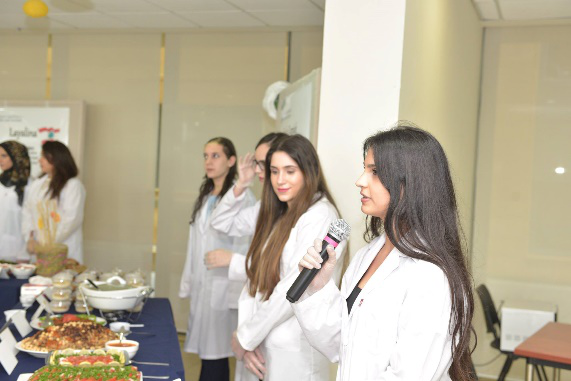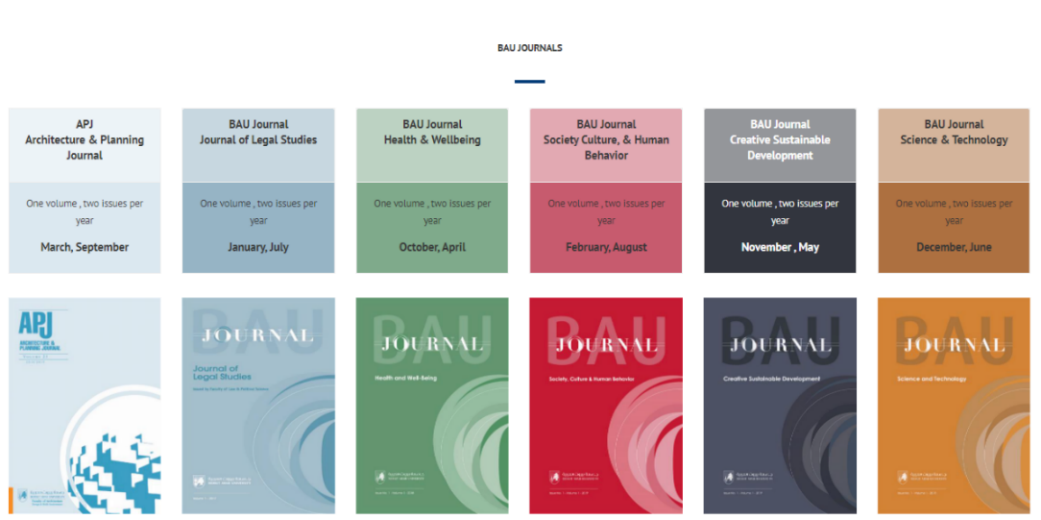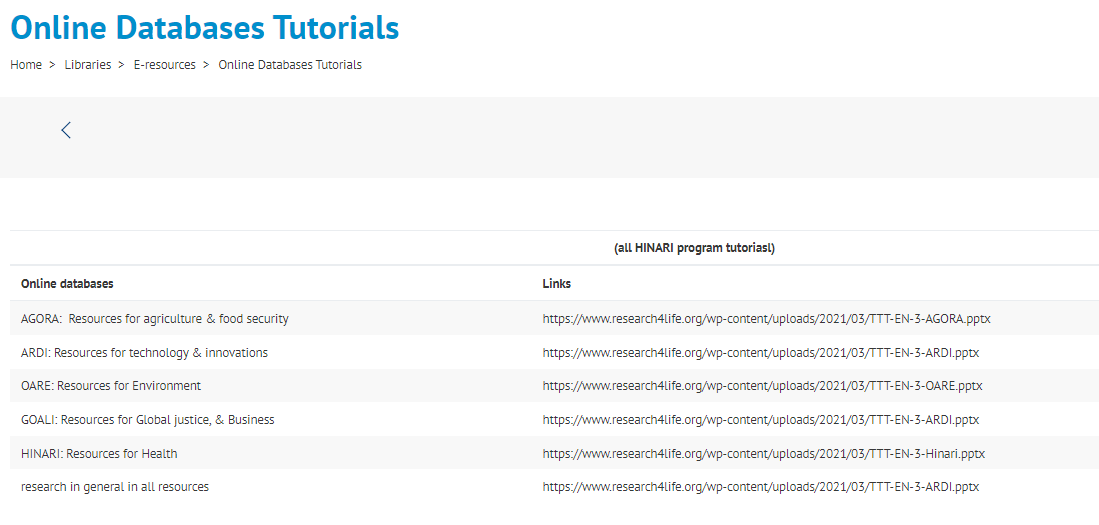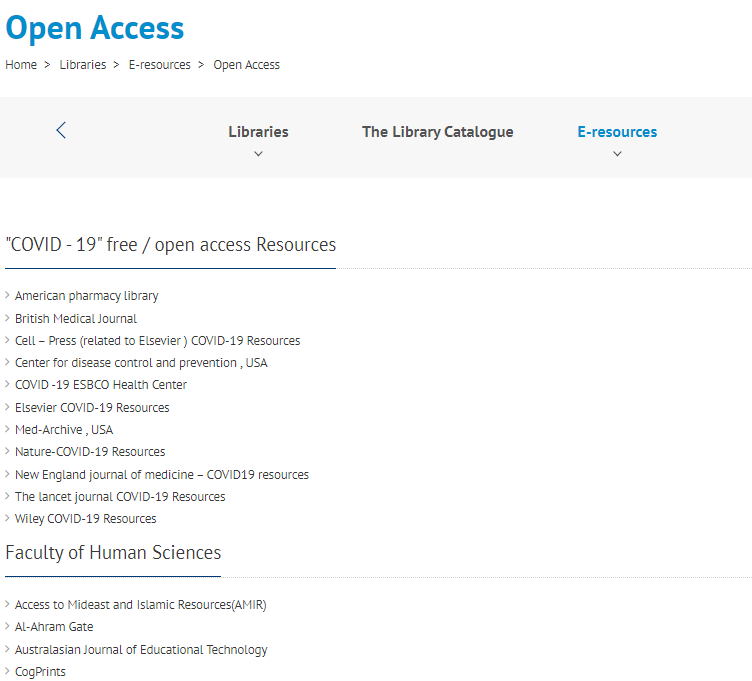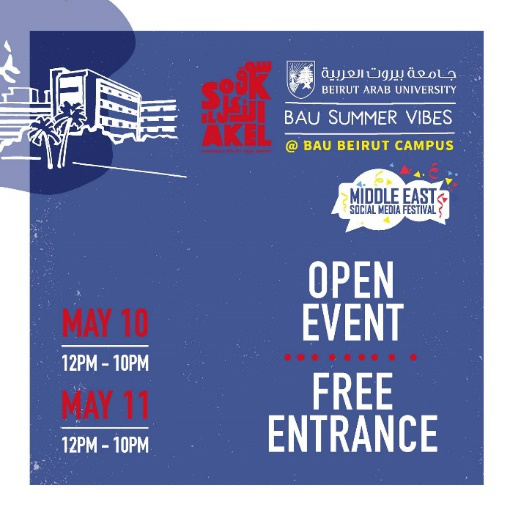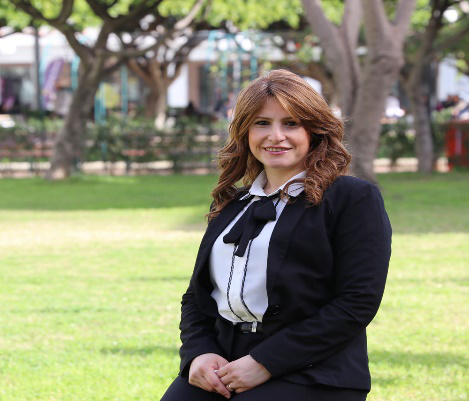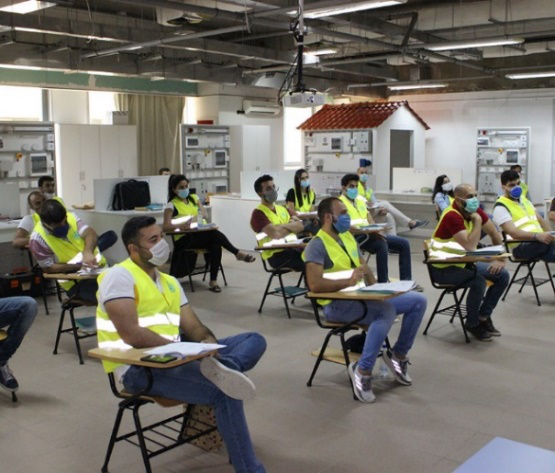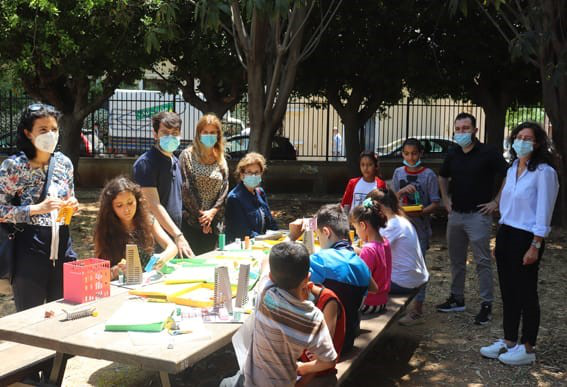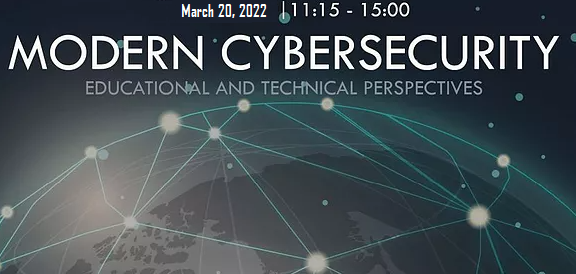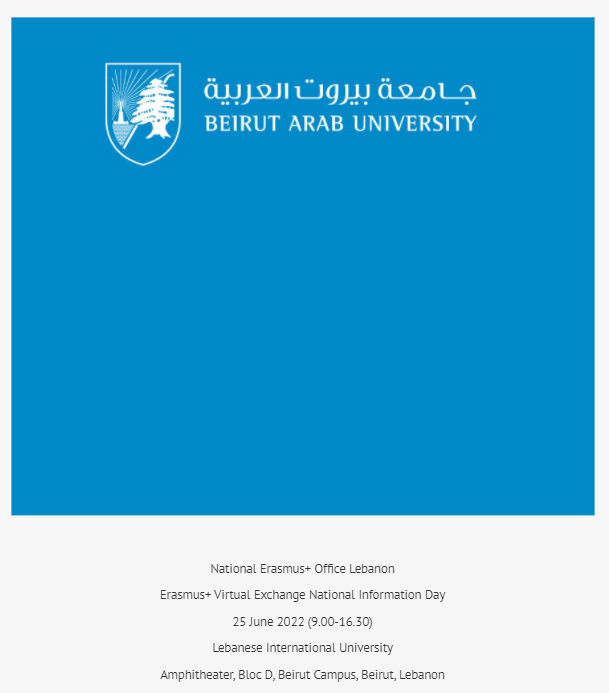Open events to the general public
Programmed
BAU is preparing a Massive Open Online Course (MOOC) on “Healthy Urban Systems” with the International Science Council (ISC), International Society for Urban Health (ISUH), World Health Organization (WHO) and about 25 other professionals and practitioners, and organizations invited and supported by University of Lausanne (UNIL) using “Coursera” platform. Healthy Urban Systems MOOC is a first Massive Open Online Course on Urban Health Systems.
It is free of charge to access all course materials on a 24-hour online platform, for a duration of twelve weeks. This MOOC gives the opportunity to develop an extensive global network with other students, professionals and community from all around the world, to expand the knowledge about the concepts and tools of Healthy Urban Systems.
The Faculty of Health sciences at Beirut Arab University -Tripoli campus organized a workshop entitled “Let’s try Mediterranean Diet”. The event was attended by the Vice President for Tripoli branch Affairs Prof. Khaled Baghdady, Faculty Director Dr. Nisrine Bissar, Faculty Students, Staff and Local community. Projects of students from the Nutrition and Dietetics Department were displayed within the framework of their food service management course aimed towards educating the public on the advantages of the Mediterranean Diet.
It is an initiative in which anyone outside the university can access information of all kinds, they can find topics from Architecture, Health & WellBeing, Society Culture & Human Behavior among others. BAU journals are official publications of Beirut Arab University, currently publishing six scholarly journals that cover a wide range of disciplines, from the humanities and the social sciences to the life and physical sciences.
In addition to working with departments and faculties of the university, BAU journals serves a world-wide community of scholars, researchers, and practitioners through the publication of peer-reviewed academic and professional journals in print and electronic form.
The journals endeavor to extend the influence of the University and the academic community to influence people's lives throughout the world. Supported by Elsevier’s digital commons platform, we are expanding our reach to connect with intellectually engaged audiences across a variety of platforms and throughout academia and beyond, we look to lead the way into the future of scholarly publishing.
BAU encourages the progress of the individual at the academic and personal level, thinking about this I develop an Online Database in which there are tutorials about all possible study topics for anyone outside the university. BAU wants the Lebanese community to strengthen its skills, this service is free of charged.
Open access It is an initiative in which BAU gives free access to its libraries to the general public free of charged, the section was developed with the aim that anyone who does not belong to the university has the opportunity to read articles, books and research that allow the general public to inform themselves, BAU develops these strategies to exterminate the educational inequality and to achieve inclusive education.
BAU in cooperation with MESMA2022 carried out a vibrant hybrid social media marketing event that merges social media experts, business people & senior university students with the aim of providing ‘higher’ level of content and dialogue-based around social media for business, along with rewarding individuals and companies who are making great strides in the realm of social media marketing, through the Middle East Social Media Award. The event was freely accessible and free for the entire local community.
Ad Hoc
An Awareness Campaign was launched by the Faculty of Pharmacy organized by Dr. Suzanne Nasser and Dr. Khaled Abdel Galil for enriching the students’ learning experiences and developing their skills in community engagement.
The Campaign targeted Students from Grades 9 to 12 in different public schools distributed in various regions since they are the vulnerable victims of the dangerous drugs abuse such as GHB (Gamma Hydroxybutyrate). Senior pharmacy students used PowerPoint Presentations and interactive discussions to enlighten and spread awareness between the students.
The United Nations Industrial Development Organization (UNIDO), with generous contribution of the Government of Japan collaborated with Beirut Arab University (BAU) and The Ministry of Industry in Lebanon to establish two new vocational training centers for Electricity and Solar energy at the BAU – Tripoli campus.
The project aims to create economic opportunities and jobs in the construction sector for members of the host and refugee communities –especially vulnerable women and youth –since investment in skills development and innovation are crucial drivers of economic growth and development.
The project focuses on delivering training skills aligned with market needs and on serving the local communities in the North of Lebanon, especially vulnerable youth & women whose enrollment in the training is encouraged as part of this project. Beneficiaries will learn new skills and acquire on the latest technologies and practices in the market in order to increase their chances of finding a job and achieve inclusive education.
The Faculty of Architecture- Design and Built Environment at Beirut Arab University organized a workshop at Karantina Park targeting the children of local community through activating their participation in the creation of game boards. This workshop was organized in partnership with UNFPA- Lebanon, UNESCO- Beirut and UNODC- ROMENA.
Beirut Arab University (BAU) - Lebanon organized a webinar entitled "Modern Cybersecurity: Educational and Technical Perspectives". As part of the Erasmus project “Enhancing Teaching and Learning and Graduate Employability through University-Enterprise Cooperation (ELEGANT),” Beirut Arab University (BAU), Lebanon, organized an event on " Modern Cybersecurity: Educational and Technical Perspectives".
The event featured webinars on modern cybersecurity from the educational and technical perspectives. The event comprised three main tracks, namely, cybersecurity in higher education, cybersecurity in research, and cybersecurity in industry.
The event featured 13 high-profile speakers (academicians and industrialists) from six different countries, namely, Croatia, Italy, Kuwait, Lebanon, Saudi Arabia, and the United Kingdom. The event hosted more than 200 attendees from Europe and the Middle East with 135 from Lebanese partner universities and people for local community.
Beirut Arab University in collaboration wit Erasmus performed the Erasmus+ Virtual Exchange National Information Day, this event will take place at the Beirut Campus and will host Erasmus + students. Additionally, people who wanted to be part of the event could register for free to obtain their place.
The event targets participants from universities and high schools (international relations officers, teachers, faculty members, students, managers) and youth organizations (officers in charge of international relations and youth mobility, support staff for youth training).
During the event, experts, testimonials and alumni of Erasmus+ Virtual Exchange will present the project and its opportunities in details. Taking part in the event will provide the knowledge and tools for institutions and individuals to get involved in the Erasmus+ Virtual Exchange project activities during the next years.
